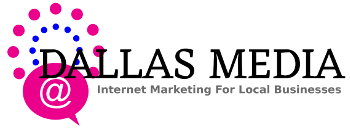OUR HOSTING AND SECURITY PACKAGE
(Exclusive to clients of DALLAS MEDIA Only)
All client website now hosted on our super-fast AMAZON Servers
- Hosting that works for WordPress and Non-WordPress (html) sites.
- High speed affordable Amazon server.
- Automatic weekly website backups.
- Each backup is saved for 3 weeks.
- Is your website still up? Status check of all websites every 15 minutes.
- Auto notification – via Text and/or Email – of website status
- One click backup restoration.
- Entire cpanel backup Daily (automatic)
- Backup version can be saved forever.
- Secure your website by blocking certain countries.
- Blocks IP’s upon repeated false login attempts.
- Comes with easy to use cpanels for maximum flexibility.
- Each cpanel with a domain get separate IP address (good for SEO).
- Easily set up and forward Email addresses within cpanel.
- Maximum flexibility to use normal ftp access.
- Super easy interface, zero technical skills needed.
…and more
Our Security Package
Dallas Secure Extreme adds an ADDITIONAL 21 Layers To Improve Your Website Security.
#1: Hide Misc Meta
#2: Hide wp-includes
#3: New wp-includes Path
#4: Hide plugins
#5: New plugins Path
#6: Hide wp-login.php
#7: New wp-login.php Path
#8: Hide wp-admin Folder
#9: Hide wp-signup.php
#10: Hide wp-signup.php
#11: Test that expose_php PHP directive is turned off.
#12: Hide wp-post-comment.php
#13: New wp-post-comment.php Path
#14: Hide misc wp-*.php files
#15: Minify/cleanup css
#16: Minify/cleanup html
#17: Prevents enumeration of usernames and hides it from hackers and scanners.
#18: Prevents installation of vulnerable plugins and automatically deletes them.
#19: Prevents installation of vulnerable themes.
#20: Scans All Your Plugins & Themes For Vulnerabilities Weekly
#21: Automatically updates and blocks known hackers
#22: Weekly Updates and Scans
BONUS
FREE– One Year SSL Certificate
How the Latest Google Chrome Changes Will Affect Your Website
Internet security is an ongoing game of cat and mouse. Web designers, programmers, and developers are always working to stay a step ahead of the scam artists and hackers whose intention it is to spoof websites, steal identities, and reveal hacked information online. Search giant Google is at the forefront of the battle, and they are introducing some big changes for their Chrome browser starting in January 2017.
As a local business owner, you can’t afford to ignore changes in online security because they have a direct impact on your business. With that in mind, let’s explore the upcoming changes so you know what to expect – and how it will affect your business in the coming year.
Why Web Security Matters
Online security is more important than ever before. It seems like hardly a month goes by without news of a new security breach. Email providers, banks, and retail outlets have all been victimized. These breaches are costly to everybody involved. The institutions whose security is compromised take a hit to their reputations, customers are at risk of having their credit cards used by thieves, and financial institutions have to issue new cards.
How Customers Know Your Site is Secure
The sites that are safest to use are those that display https:// before their URLs. Sites that are not secured are usually preceded just by http://. Savvy consumers know that it is best not to hand out their credit card information – or any other personal information that might enable a thief to steal their identity, such as a full name, their mother’s maiden name, and so on – on a site that lacks the https:// prefix.
How Google Chrome is Changing
At present, Google Chrome uses a relatively subtle designation to let their customers know whether a site is secure. On any site that uses the https:// prefix, Chrome puts the prefix in green and displays a little lock icon next to it.
Google has announced changes because they fear that the current designation is too low-key to be effective. Starting in January of 2017, their new display will feature the words “Not secure” before the URLs of sites starting with http://. They conducted a study that showed that customers were not perceiving the lack of a green lock as a warning that the site was not secure.
The “not secure” label is only the first step in their efforts to protect their users. Future updates will add the new warning to incognito browsing, and eventually the plan is to display a prominent red triangle as a warning.
Why should does this matter? Because 71% of all local searches on Google’s are done through the Chrome browser and that means that a large percentage of your online traffic will be discouraged from clicking on your website.
